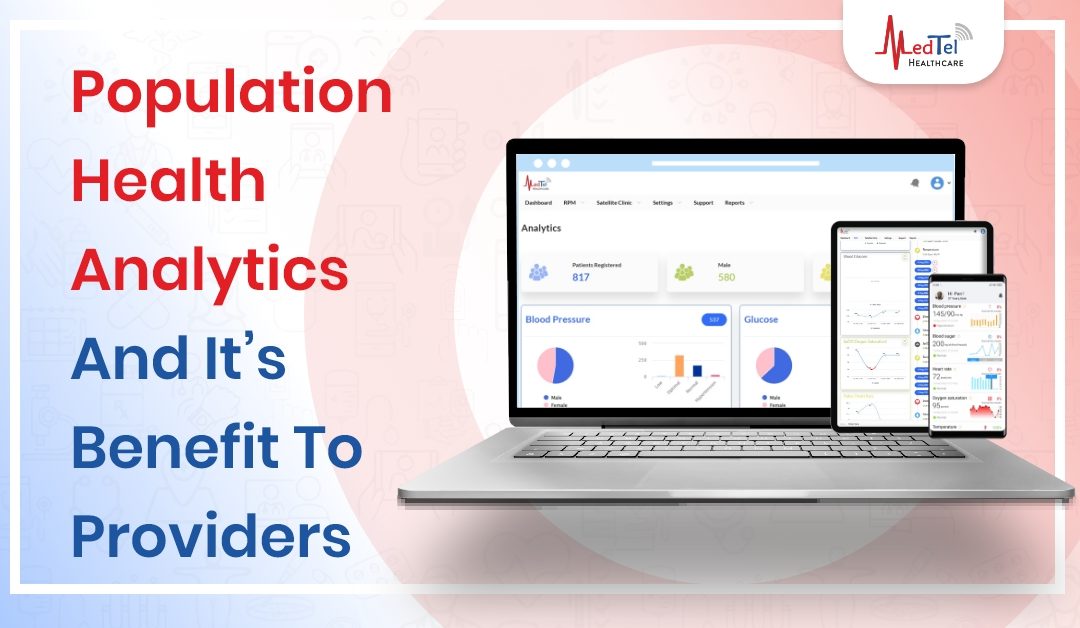The COVID-19 epidemic in recent years serves as an excellent example of the capabilities and advantages of data analytics in healthcare. It enabled healthcare practitioners to better manage resource allocation to ensure that patients receive the most effective and efficient care possible during the epidemic. Additionally, it assisted governments and healthcare organisations in forecasting outbreaks of infection so that the appropriate precautions might be taken to safeguard communities all over the world.
Myriad advantages of data analytics have increased production, improved decision-making, and efficiency across many industries. There is no exception in the healthcare sector. The use, management, analysis, and utilisation of important healthcare data by doctors and other medical professionals has altered as a result of the application of natural language processing, or NLP, in the healthcare sector.

ImgSrc: https://ucanr.edu/blogs/blogcore/postdetail.cfm?postnum=41043
Population health management, it’s correlative, involves the collection and analysis of data from various sources, including electronic health records, quality reporting systems, and accountable care organisations, with the aim of lowering costs and enhancing service. The crux of a PHM study is the development of workable solutions; to arrange data such that service providers can use it right away.

EVOLUTION OF THE HEALTHCARE SECTOR
Hardcopy notes were kept and maintained for each service or treatment that a doctor, nurse, or other healthcare professional rendered to a patient until recently. With the use of digital health records, this was done away with in the healthcare industry. The fact that these documents can now be accessed from any location and duplicated makes it not only significantly safer but also more practical. It has made critical medical information available to doctors or other healthcare professionals whenever necessary, regardless of the type of therapy the patient needs to receive. In addition to improving patient care and treatment results, this can also help facility administration. Together, these factors improve the effectiveness and efficiency of the entire healthcare system.

THE IMPORTANCE OF DATA ANALYTICS IN HEALTHCARE
- Enhanced diagnosis
The ability of healthcare providers to diagnose diseases more quickly and accurately than before is one of the key advantages of data analytics. To determine the most likely diagnosis, algorithms in this case analyse the information provided by healthcare practitioners.
- Improved health results
Health outcomes increase when patient care does. One advantage of data analytics is that it enables medical professionals to anticipate results, which enables them to design the most effective therapies. Thus, data analytics is useful for treating non-communicable diseases as well as dangerous conditions like diabetes mellitus.
- Improved interactions with patients
By utilising patient voice in healthcare through TeleMedicine, healthcare professionals can learn how patients truly feel about their experiences enabling them to put into practice the required techniques to enhance the patient experience. These factors work together to improve patient relationships.
- More positive health indicators
Big data analytics in healthcare can provide more precise health indicators for diabetes, mental diseases, and suicide mortality rates. They aid in the diagnosis and forecasting of the likelihood that a patient would die from a certain disease or have a recurrence of a medical condition. This enables medical professionals to make well-informed choices about preventing suicide attempts, keeping an eye on patients in rehab, or helping trauma victims.
- Better procedural decision-making
One of the key advantages of data analytics is that it enables healthcare providers to find patterns and trends in their data and draw conclusions from them. They are able to make better data-driven judgments as a result. The use of AI and data analytics in surgical procedures is also being urged to be prioritised, as it can assist surgeons in more precise and detailed process planning.
- Preventive measures
Using big data analytics, healthcare professionals can determine a person’s risk of contracting an illness based on their lifestyle and activity. They can therefore spot the early indicators of serious sickness considerably more quickly. Additionally, they can treat the illness more successfully if they can see these indicators much earlier.
- Facilities administration
From the perspective of a healthcare facility, one of the key advantages of data analytics is that it enables them to enhance operations, increase process efficiency, and reduce expenses. They can accomplish this because big data analytics enables businesses to analyse their data, which enables them to make better plans and more efficient resource allocations.
CONCLUSION
Big data analytics have evolved dramatically in the healthcare industry over the past few years, and a plethora of new technologies are now accessible to enable healthcare practitioners to guarantee improved patient care, health outcomes, and treatment. The development and acceptance of Internet of Things (IoT) devices and telemedicine are two of the largest advances in healthcare in recent years. They allow patients to receive high-quality care without having to travel to a medical centre, and big data analytics makes them possible. The patient experience platform assists in transforming patient input into insightful information that can deliver better patient experiences. Healthcare Analytics presents innumerable opportunities with enormous potential to transform the working of the ecosystem.
